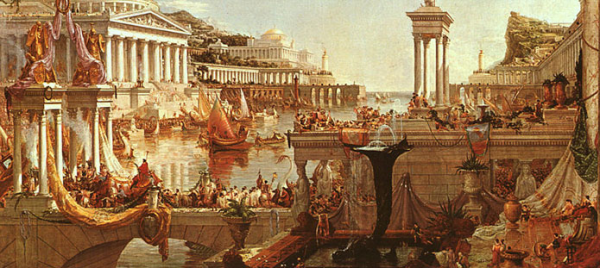GS101 - Freedom & Authority
The conflicts of individual freedom and institutional authority in ethics, politics, science and religion. Readings emphasize the development of these conflicts in Western culture, from antiquity to modern times, and are related to the decisions which students must make concerning the central values in their lives. Freshmen only. Students may receive separate grades for each block of this course, but must be enrolled in all the blocks in order to receive credit. (Cannot be taken for credit after General Studies 301.) (Not offered 2025-26).
Prerequisite: First Year Experience Course. 1st Years Only.
1 to 2 units
Previously Featured Offering
Freedom and Authority investigates how Western intellectual and cultural traditions may be drawn upon or need to be criticized if we are to meet the challenges of contemporary life.

Exploring in an interdisciplinary manner the conflicts of individual freedom and institutional authority in ethics, politics, science and religion, Block 1 looks at ancient types of personal authority—the hero (in epic and drama), the citizen (in democratic Athens and republican Rome) and the prophet, saint or martyr in religious, philosophical and political contexts. We consider how these types are to be applied in modern societies: can the Homeric hero function in a modern war or come home to a late-capitalist society? How does a modern representative democracy represent “power of the People” or a mixed, republican constitution balance individual freedom against the power of multinational corporations and global free trade? How do we know when a Socratic daimonion or the voice of God should be attended to? After an examination of some modern structures that may promote or frustrate individual freedom, Block 2 explores these dynamics through the lens of Renaissance, Enlightenment, and Industrial Revolution thinkers. We will trace the major social and political movements of the past five centuries. Special attention will be paid to how scientific, industrial, and economic developments have fundamentally changed the relationship between the individual and society. A major goal of the second block is to apply this knowledge to modern-day debates, including climate change, anti-vaccination, anti-fracking, cybersecurity, and online privacy.
No offerings are currently scheduled.
Report an issue -
Last updated: 08/11/2025



